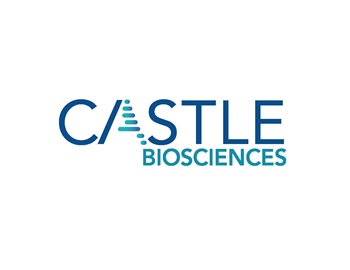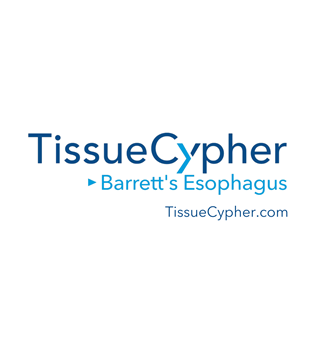Anschutz Health Sciences Building. Photo courtesy of ZGF Architects © Connie Zhou
Paul R. O’Hara II Esophagogastric Symposium
Saturday, April 4th, 2026
University of Colorado Anschutz
The Don Elliman Conference Center, located on the 2nd floor of Anschutz Health Science Building (AHSB)
18900 N Revere Ct,
Hosted by the Katy O. and Paul M. Rady Esophageal and Gastric Center of Excellence
Course Directors: Sachin Wani, MD, FASGE, AGAF and Madeleine Kane, MD, PhD
Course Organizers: Jessica Dry, MHA and Maddie Taylor, MSHA
Shared Content Block:
Cancer Center Styles -- Give headings inside accordions and tabs more top margin
Conference Location
The conference will held be at the University of Colorado Anschutz in Aurora, Colorado, in the Don Elliman Conference Center, located on the 2nd floor of Anschutz Health Science Building (AHSB).
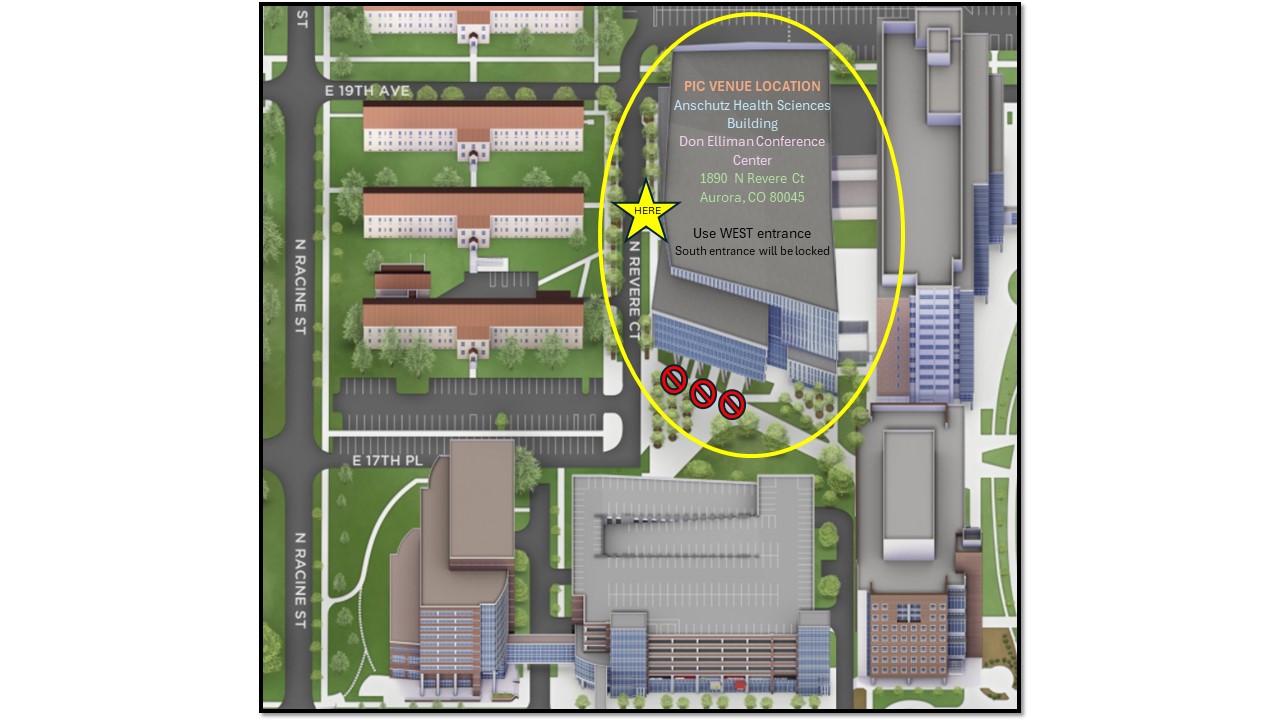
Conference Parking
Parking will be available for all attendees in the Vail, Breckenridge, Snowmass or Aspen lots.
Conference Entrance
Enter the building through the west entrance. From past the security desk, you will make a left to take the elevator to the second floor. If you want to take the stairs, after the security desk, make a right and use the main staircase.
Remembering Paul R. O’Hara II
When Paul O’Hara II was diagnosed with advanced esophageal cancer, he traveled to Colorado where his sister Katy Rady lived to meet with the medical team at the CU Anschutz Cancer Center. They had learned about the multidisciplinary care and positive patient outcomes offered by the University of Colorado Anschutz Cancer Center. Soon they became overwhelmed – in the best way possible – by the multidisciplinary care at the cance center. Their first visit to the CU Anschutz Medical Campus came on a cold January morning. After the appointment, Paul and Katy walked to the Fitzsimons Building. They visited the Eisenhower Suite where President Dwight D. Eisenhower spent seven weeks recovering from a heart attack in 1955. Then they strolled onto the roof of the eight-story building, and Paul surveyed the campus and Colorado’s wide-open skies. They were impressed and had hope.

Paul O’Hara II succumbed to his illness in 2015, but the quality care he received convinced the Rady’s to support the CU Anschutz Cancer Center and accelerate the pace of research for esophageal and gastric cancer. With an initial gift, they created the Paul R. O’Hara II Esophagogastric Cancer Symposium, the Paul R. O’Hara II Endowed Chair in Esophageal Cancer and the Paul O’Hara Esophageal Cancer Biorepository as a lasting tribute to his memory.
Madeleine Kane, MD, PhD, became the Paul R. O’Hara II Endowed Chair in Esophageal Cancer. Kane developed a close relationship with the Rady family when they came to the cancer center seeking treatment for Katy’s brother. “Caring for a patient throughout cancer treatment, when there is no known cure, is a foundation for a sacred relationship,” she said. “Through the Radys’ gift to establish the Paul O’Hara symposium, I saw their commitment to funding innovative research. I was also fortunate to develop a relationship with Dr. Sachin Wani; I was amazed by his research and knew that a stronger partnership between our groups would be a catalyst for our leadership in esophageal cancers.”
Sachin Wani, MD, was later named as the Executive Director, Katy O. and Paul M. Rady Esophageal and Gastric Center of Excellence. The center was established in late 2022 in the hopes of advancing esophageal and gastric cancer research, clinical trials, screening, and treatments.
2026 Paul R. O’Hara Invited Speakers
Program Directors:
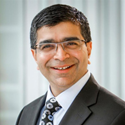
Sachin Wani, MD
Sachin Wani, MD, is the Katy O, and Paul M. Rady Endowed Chair in Esophageal Cancer Research and a Professor of Medicine at the University of Colorado Anschutz Medical Campus specializing in esophageal diseases and therapeutic endoscopy. He has a long-standing research focus in the field of Barrett’s esophagus and esophageal adenocarcinoma.
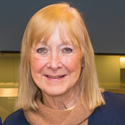
Madeleine Kane, MD, PhD
Madeleine Kane, MD, PhD has served as the Principal Investigator (PI) of the ACS IRG for over 15 years and holds the Paul R. O’Hara II Endowed Chair for Esophagogastric Cancer. Additionally, Dr. Kane has been the program director for the Paul O’Hara Symposium for the past five years. Dr. Kane's commitment to providing seed funding for junior faculty establishing cancer research careers is exemplified by their role as the recipients of the Paul R. O’Hara II Seed Grant Awards.
Leadership:
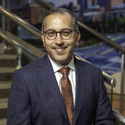 Vineet Chopra, MBBS, MD, MSc
Vineet Chopra, MBBS, MD, MSc
Vineet Chopra, MBBS, MD, MSc, is Professor of Medicine, holder of the Robert W. Schrier Endowed Chair and Chairman of the Department of Medicine at the University of Colorado (CU). In April 2025, Dr. Chopra was appointed Executive Vice Dean for the School of Medicine at CU, overseeing clinical affairs, quality, and research at the School. Prior to coming to CU in 2021, Dr. Chopra served as the inaugural Chief of the Division of Hospital Medicine at the University of Michigan from 2017-2021.
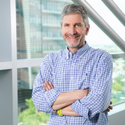
James DeGregori, PhD
James DeGregori, PhD, is a Professor in the Department of Biochemistry and Molecular Genetics and Interim Director of the CU Anschutz Cancer Center. His lab studies the evolution of cancer, with a focus on how aging, smoking, Down Syndrome, and other biological insults influence cancer initiation, progression, and therapeutic responses.
Keynote Speakers:

Karyn A. Goodman, MD, MS, FASCO, FASTRO, FACR
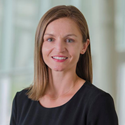
Kelsey A. Klute, MD
Kelsey A. Klute, MD, is an Associate Professor and board-certified medical oncologist at the University of Nebraska Medical Center, where she serves as Medical Director of the Gastrointestinal Oncology Service Line and the Pancreatic Diseases Specialty Clinic. After earning her medical degree from the University of North Dakota, she completed her residency at Washington University/Barnes-Jewish Hospital and her fellowship at Weill-Cornell Medicine. Dr. Klute holds pivotal roles on the NCCN Guidelines Panels for Pancreatic Adenocarcinoma and serves as Co-Chair for the ASCO Guideline Panel on Gastric Adenocarcinoma. Her research is dedicated to developing novel therapeutic strategies for gastrointestinal malignancies, particularly upper GI and pancreatic cancers. As a GI medical oncologist with a deeply personalized approach to patient care, Dr. Klute partners with her patients to align advanced therapeutic strategies with their unique goals and priorities.
Speakers:
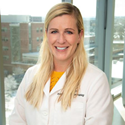
Kelli DeLay, MD
Kelli DeLay, MD is an Assistant Professor within the Division of Gastroenterology at the University of Colorado. Kelli is a regional expert in esophageal disease and upper GI motility disorders and is the Clinic Director for the Benign Esophageal and Gastric Multidisciplinary Clinic (MDC).
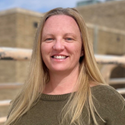
Andrea Dwyer
Andrea (Andi) Dwyer is the Director of the Colorado Cancer Screening Program (CCSP) and the AD of Katy O. and Paul M. Rady Esophageal and Gastric Center of Excellence at the University of Colorado Anschutz Cancer Center and The Colorado School of Public Health and serves as a co-investigator on a number of dissemination and implementation science grants, particularly focusing on health equity and sustainability strategies for lung, hereditary and colorectal cancer screening. Ms. Dwyer is on the Executive Committee of the Alliance of Community Health Workers, Patient Navigators and Promotores de Salud. Andrea is the Chair of the National Navigation Roundtable, supported by the American Cancer Society and is on the Leadership Council of AONN+. Ms. Dwyer also advises Fight Colorectal, a national colorectal survivorship nonprofit, in their health promotion and research aims.
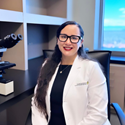
Daysha Ferrer-Torres, PhD
Daysha Ferrer-Torres, PhD earned her Bachelor of Science degree from the University of Puerto Rico at Mayagüez, receiving multiple prestigious honors, including the Sloan Undergraduate Minority Research Award. She later worked under the mentorship of Dr. David G. Beer at the University of Michigan, focusing on the molecular characterization of esophageal adenocarcinomas and investigating racial disparities in cancer incidence.
During her Ph.D., Dr. Ferrer-Torres was awarded the Rackham Merit Fellowship and the Ruth L. Kirschstein National Research Service Award (NRSA) Individual Predoctoral Fellowship from the National Cancer Institute. In 2017, she joined the Spence Lab, applying single-cell RNA sequencing to characterize human in vitro models that mimic the cellular heterogeneity of the esophagus. Her postdoctoral efforts earned her the MICHR Postdoctoral Translational Scholars Program (PTSP) Fellowship and an appointment to the Center for Organogenesis Training Fellowship.
Dr. Ferrer-Torres is also an award-winning public speaker and skilled science communicator with expertise across written, verbal, and visual platforms. She is the recipient of the K99-R00 award from the National Institute of Diabetes and Digestive and Kidney Diseases (NIDDK) for research focused on cancer progression and the use of human-derived organoids to explore racial disparities in disease.
Dr. Ferrer-Torres currently serves as an Assistant Professor at the University of Colorado Anschutz Medical Campus, where she has established the Ferrer-Torres Lab. Her lab focuses on esophagogastric diseases and translational research, supported by the Katy O. and Paul M. Rady Esophageal and Gastric Center of Excellence at the University of Colorado Anschutz Cancer Center.
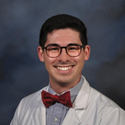
Stefan Marasligiller, MD
Stefan Marasligiller, MD is a general surgery resident at the University of Colorado Anschutz Medical Campus and the inaugural O’Hara Rising Star Trainee at the University of Colorado Anschutz Cancer Center’s Katy O. and Paul M. Rady Esophageal and Gastric Center of Excellence. During his dedicated research time, he works to strengthen multidisciplinary collaboration within the Rady Center, supporting novel methodologies and multiple-PI initiatives focused on improving outcomes for patients with esophageal and gastric cancer. He is dedicated to a career in academic surgical oncology and to building collaborative, clinically impactful research programs in upper gastrointestinal malignancies.
Join us in raising awareness for esophageal cancer!
Sunday, April 25, 2026, 9:00 am – 11:00 am
Check-in: 8:30 am
Race Start: 9:00 am
Race End By: 11:00 am
Location: Anschutz Medical Campus – Boettcher Commons
Register Here!
This event is outside. In case of unexpected weather, we have an emergency action plan in place. We will contact you via email if anything were to change.


